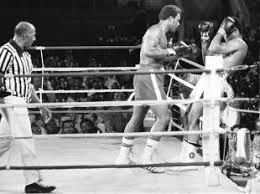Nib #51 — Writer’s Block is All in Your Head
There is lots of good advice out there about overcoming writer’s block.
If you’re stuck, move to a different room. Write longhand instead of typing. Read for a while. (This one I strongly endorse, especially reading weird, modernist poetry. It resets the linear, logical mind very well.) Copy out a page from a book you like. Go for a walk.
All of these suggestions work for at least some writers, at least some of the time.
But the important thing to understand about Writer’s Block is that it’s all in your head. It’s not a disease or a bad habit or a moral failing. It’s mostly a symptom of distraction. Writer’s Block is what happens when a writer thinks about writing, rather than about what he or she needs to write.
Notice, we don’t really get Talker’s Block. In conversation, our audience is so close by, so concrete, so responsive and stimulative that we focus on them. We are too busy communicating to think about how to communicate.
It’s the same with writing. We tend to get blocked when we ask ourselves, “How do I want to put this?” or “What am I trying to say?” Those questions draw our minds inward. Once on that path, it’s only a matter of time before we face truly toxic questions like, “Why can’t I do this?”
Self-analysis is the creativity killer.
If Writer’s Block is in your head, then the solution is to get out of your head. Focus on the audience. Or the characters in your story, or the points in your argument. Don’t think about what you are trying to say (that’s what editing is for anyway). Think instead about what the audience needs to hear to achieve its goal.
Why should voters support your border security proposal? How would students do better under your school reform plan? How will men benefit from buying your innovative new brand of razor? How would the heroine of your novel escape from her enemy’s trap?
Think about what your story, your essay, or your audience needs, and the words will come. In writing, as in most areas of life, the quickest route to success is to stop thinking about yourself.
Happy Christmas, and until next week… Keep writing!











